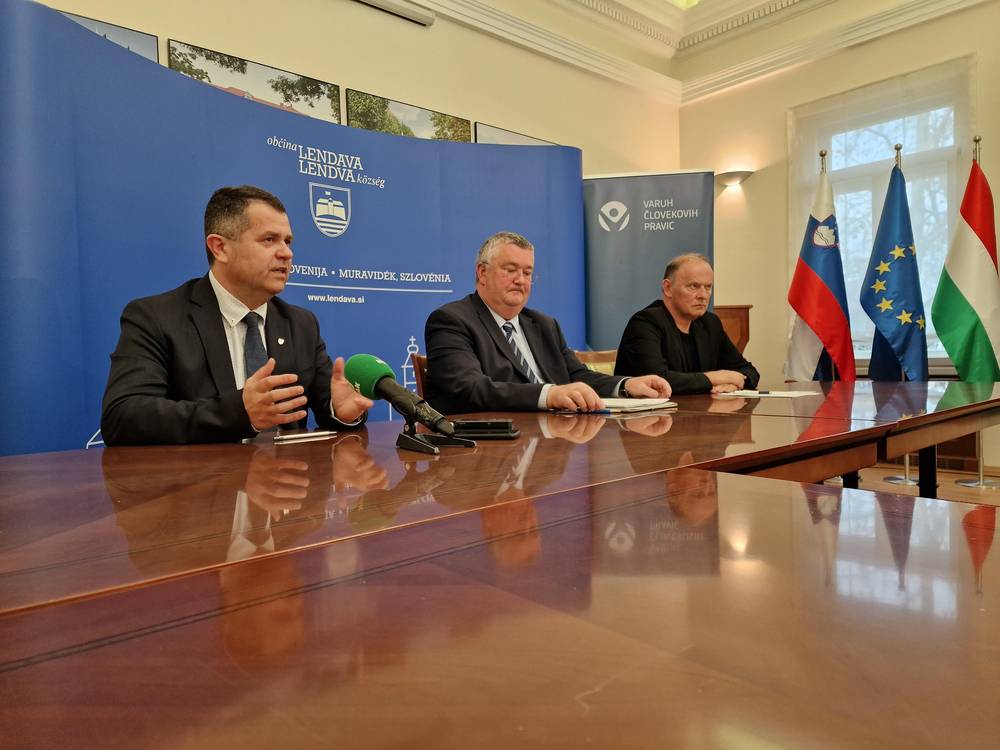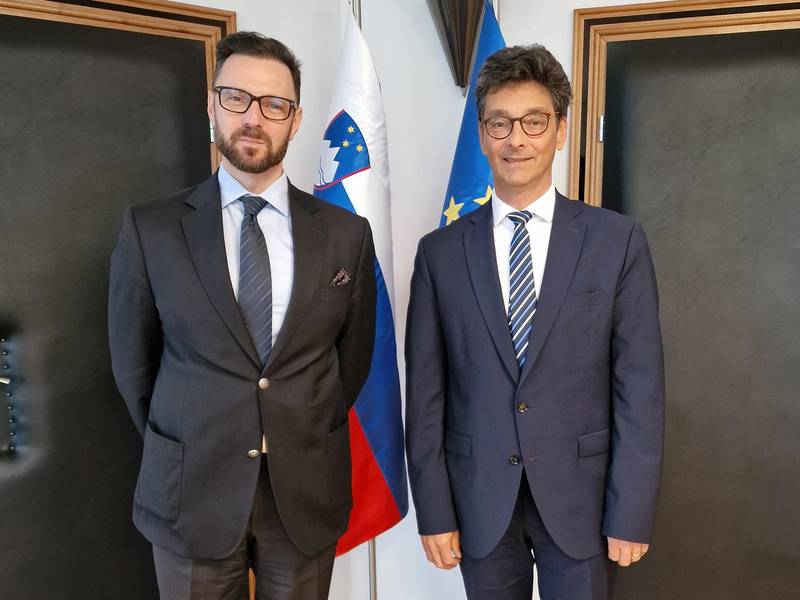The Institution of the Human Rights Ombudsman carried out the second operation outside the headquarters in 2023 in Lendava. The Ombudsman’s staff was led by the Deputy Ombudsman Ivan Šelih, since the Ombudsman Peter Svetina was presenting a Special Report on the Accessibility of Centres for Social Work to members of the National Assembly. Nine persons applied for the discussions, since they were of the opinion that they require the Ombudsman’s assistance in the enforcement of their rights. The deputies and other staff also met with the mayor of the municipality Janez Magyar, who informed them about the plans for the development of the municipality and the care for vulnerable groups also with certain innovative methods. The deputies welcomed the measures undertaken by the municipality.
In the press release, the deputies Ivan Šelih and Jože Ruparčič outlined the issues they dealt with that day. Deputy Šelih revealed that all three complainants he talked with up to that moment came for the assistance of the Institution of the Ombudsman with contents related to the coexistence problems in the region with ethnically mixed population. The first question, which is already treated as a complaint by the Ombudsman, was the question of determining the level of Hungarian language proficiency as the condition for employment in educational institutions. “Until yesterday, the main problem was that there were no rules according to which the proficiency level for employment is determined. Yesterday those rules were published, however this is not yet a solution to the issue, therefore the Ombudsman will continue to handle the case,” said deputy Šelih.
He and his assistant also received complainants who highlighted learning difficulties of children in bilingual schools due to obligations related to the Hungarian language. The complainant is particularly surprised that the systems of both national self-regulatory communities in the field of education are different, since in the coastal region, an individual is able to decide if he/she wants to attend a bilingual school, while in the region of Slovenia along the Hungarian border education in a bilingual school is mandatory. According to the deputy, the Ombudsman will examine the issue in detail within his sphere of competence.
The third question was related to the possibility of participation of representatives of the Hungarian national community in elections in Slovenia. According to his words, the complainant’s wife, a representative of the aforementioned community, is allowed to participate in municipal elections, however she is not allowed to participate in elections for representatives of the national community. The deputy assured that the Ombudsman will examine this question in detail as well.
Deputy Ruparčič and the director of specialist service, Martina Ocepek, have dealt with social and environmental issues and issues in the field of justice. A single mother turned to the Ombudsman for assistance related to a housing issue. Deputy Ruparčič praised the rapid action by the mayor who immediately started resolving the problems of the family, of the sick single mother and three children, and assured that they would be taken care of.
The deputy said that the complainant who turned to the Ombudsman with the question of determining the pension amount, was directed to appropriate competent institutions. “We also proposed to him that he should address all his letters to the Ombudsman for reference, so that as a subsidiary authority, the Ombudsman is able to assess whether the authorities act according to the acts and the principle of good administration,” the deputy added.
The deputy also stressed that we are still not aware enough that the right to living in a healthy environment without unnecessary noise and emissions is one of the main standards of living. This is also why the Ombudsman will deal with the environmental issue that was raised that day.
The Ombudsman is not able to handle the third problem related to justice at this moment, since legal proceedings are taking place, in which the Ombudsman is not allowed to intervene. The institution will get involved immediately when they are completed and will try to assist in the exercise of the complainant’s rights, in accordance with the competences.
Deputy Šelih and the mayor of Lendava, Magyar, have also opened the Ombudsman’s corner in the premises of the municipality of Lendava, which is the 13th Ombudsman’s corner in a row. The corner is equipped with a stand, on which useful information on the institution’s work in the form of leaflets and brochures, and also the form for lodging a complaint are available to residents. Information is accessible in standard printed form, since many have trouble navigating in the flood of information on the internet or do not have the option to do so or are not skilled in this type of communication. A leaflet about the Ombudsman in easily readable form was prepared as well, which is intended for everyone who has trouble in understanding complex texts due to their impairment. The Ombudsman also did not forget all those who are skilled in surfing the internet and, in cooperation with the municipality of Lendava, they prepared the so-called digital Ombudsman’s corner, where the same information is accessible as in corners set up in individual municipalities. Residents can acquaint themselves with the Ombudsman’s corner in municipal newsletters.




